French crossing the Rubicon - Austria and the unknown Turk - Joschka and the Balkans
Dear friends of ESI,
We are currently expanding our website section on the past, present and future of European enlargement, including new sections on enlargement thinkers, concrete enlargement stories and analyses of enlargement debates across Europe.
New material includes an analysis of the importance of the Europeanisation of the Balkan countryside; a closer look at the transformation of Bulgaria since 1997; and case studies of EU member-state building in areas such as environmental policy and rural development.
Crossing the Rubicon in Paris
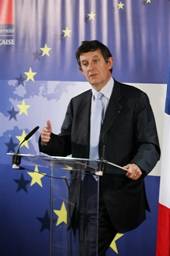 |
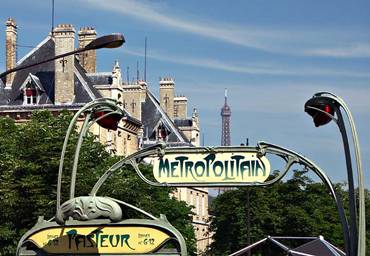 |
|
Jean-Pierre Jouyet |
Paris |
That enlargement has a future has recently also been stressed in Paris. A few weeks ago French Minister for Europe, Jean Pierre Jouyet, announced that France had "crossed a very important Rubicon":
"We used to believe that a federal Europe was necessary for a more deeply integrated union and that enlargement would counter this and prevent Europe from working effectively. We have now overcome this contradiction. The thing that has most struck me since I took up this job seven months ago is precisely the capacity of an EU of 27 members, and more one day, to take decisions."
Jouyet, former chief of staff of Commission President Jacques Delors, underlined that France was "not worried about further extending the EU's borders".
Nor is a majority of the French public worried about enlargement. According to a Eurobarometer poll from late 2006 there is in fact a majority in France for the accession of every Western Balkan country.
This is an encouraging signal to an increasingly sceptical public in the Western Balkans. It now should be followed by concrete steps towards candidate status (for Bosnia, Montenegro and Albania) and accession talks (for Macedonia), as well as movement towards visa-free travel (for all) in 2008. As for Serbia it is to be hoped on the eve of a crucial election that it will not miss yet another wide-open window of opportunity.
The same poll shows that popular opposition to enlargement to the Balkans is in fact found in only a few countries: Austria, Germany, Luxembourg and Italy. Austria stands out: Sixty-two percent of Austrians oppose Macedonia, 73 percent oppose Albania, 59 percent oppose Bosnia-Herzegovina and 65 percent oppose Serbia (in 2006 still Serbia-Montenegro). In each case, this is the European record.
The unknown Turk and the Austrian political elite
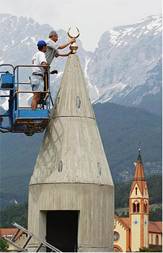 |
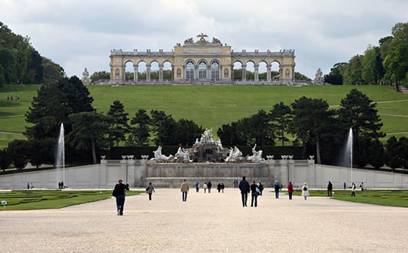 |
|
New Mosque in Tyrol |
Imperial Vienna |
A new ESI report (supported by the Open Society Institute) and a background analysis on modern Austrian political identity aim to elucidate the remarkable Austrian opposition to enlargement in general and Turkey in particular.
In 2006 only 5 percent of the population supported Turkish accession. This is a recent development. Opinion polls from 2002 showed opposition for Croatian accession in Austria was almost as strong as for Turkey. Yet by 2005, the weight of opinion had completely reversed, with a solid majority supporting Croatia, combined with a hardening of opposition for Turkey. This directly reflects political leadership and growing familiarity with Croatia as tourism and economic contacts have increased.
Eurobarometer polls 2002-2005
|
2002 |
2005 |
|
|
Croatian accession |
||
|
- in favour - opposed |
34% 51% |
55% 40% |
|
Turkish accession |
||
|
-in favour -opposed |
32% 53% |
10% 80% |
Since 2002 Turkey has strengthened its democracy, its economy has grown strongly and the EU negotiation mandate has opened the door to the possibility of national safeguard clauses in case of accession. So why have concerns grown rather than diminished during this period? One reason is ignorance. Austrian politicians have made few efforts to explain their decisions taken in 1999, 2002 and 2004. There were no visits by Austrian ministers to Ankara or Istanbul in 2006 or 2007. Nor has there been much exchange in other fields, from culture to academia.
There is a need for a thorough debate on the advantages and disadvantages, costs and benefits of Turkish accession. However, if Austria proceeds with a referendum, a serious debate will be the first casualty. It is sufficient to imagine how an Austrian Referendum on Turkey in 2015 would actually look like to see why.
The alternative to a populist campaign is a dispassionate look at how contemporary Turkey is changing on issues like freedom of expression and the status of women, what accession would really cost and what adjustment would have to be made in EU institutions. If it emerges that there are vital Austrian interests that need to be protected, politicians should assess whether there are other strategies available than a blunt rejection at a referendum.
Austria is one of the wealthiest countries in the world (4th among EU members in per capita terms). Its economy has prospered since it joined the EU in 1995. With 4.2 percent it has one of the lowest unemployment rates in Europe. It is a country which deserves – and has a responsibility to foster – a different debate on such an important issue for the future of Europe.
Joschka Fischer and the Balkans
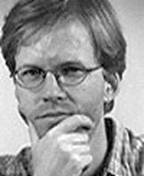 |
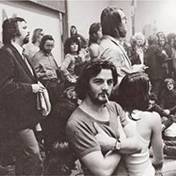 |
|
Paul Hockenos |
Joschka Fischer |
Paul Hockenos, a former ESI analyst based in Berlin, has recently completed a fascinating book on modern Germany. The evolution of the Greens' foreign policies is one of the transformations examined by Paul in Joschka Fischer and the Making of the Berlin Republic: An Alternative History of Postwar Germany.
We have teamed up with Paul and the publisher, Oxford University Press, to produce a 15 slide picture story about Joschka Fischer and the Balkans. You can also find a full chapter from Paul's earlier book on Balkan diasporas on our website.
Rumeli Observer and ESI news
The Rumeli Observer has new articles on promoting the case for visa liberalisation in Brussels, on the ghosts of Spain and dealing with the past, on how a think tank like ESI actually works, plus recommended reading by Jane Jacobs, Charles Ingrao and Mark Mazower and more. In February the Rumeli Observer will report from Paris.
Two interesting recent articles: one in the NZZ about ESI in general (also available in English translation) and one frontpage news story in Die Presse about our recent Austria report.
ESI's Nigar Göksel edited the newest edition of TPQ on the South Caucasus. If you are in Georgia and Azerbaijan and are interested in working with ESI please check out our website on new opportunities.
Best regards,
![]()
Gerald Knaus

Gerald Knaus
- ESI report: A referendum on the unknown Turk? Anatomy of an Austrian debate
- Picture story: A referendum on the unknown Turk?
- Picture story: Joschka Fischer, The German Greens and the Balkans
- Rumeli Observer column
